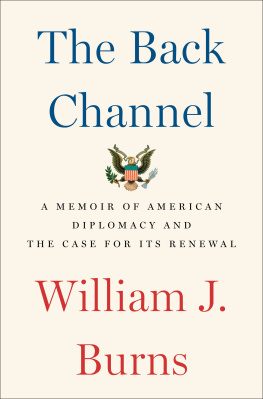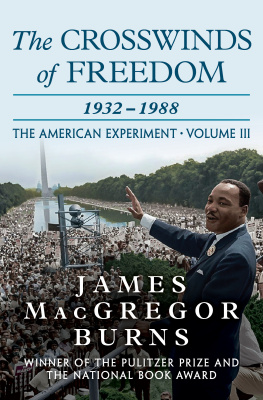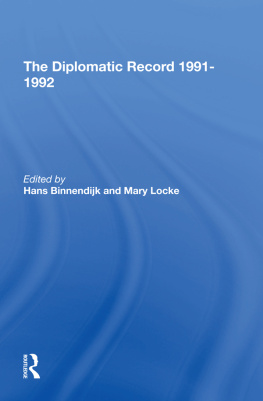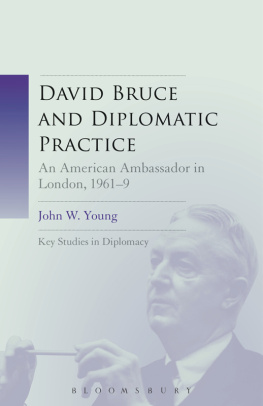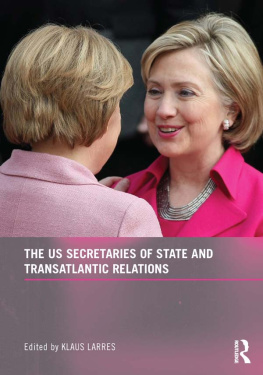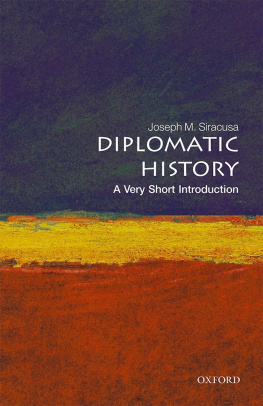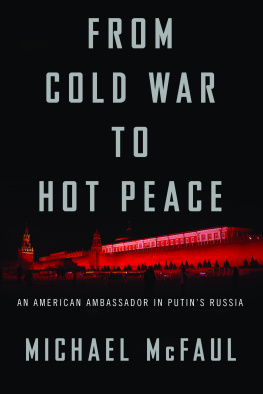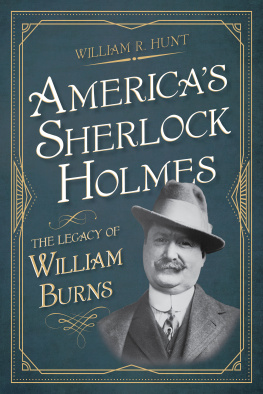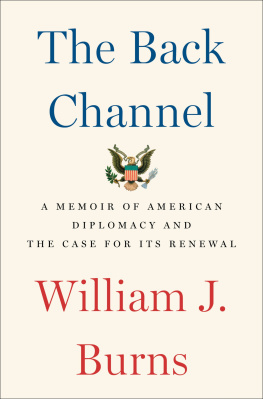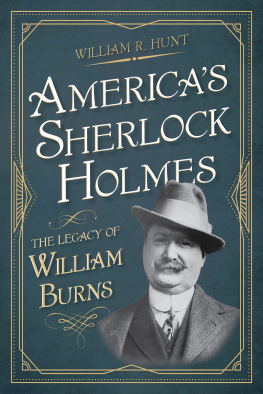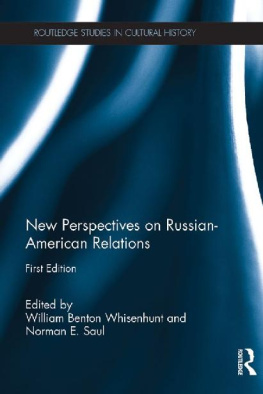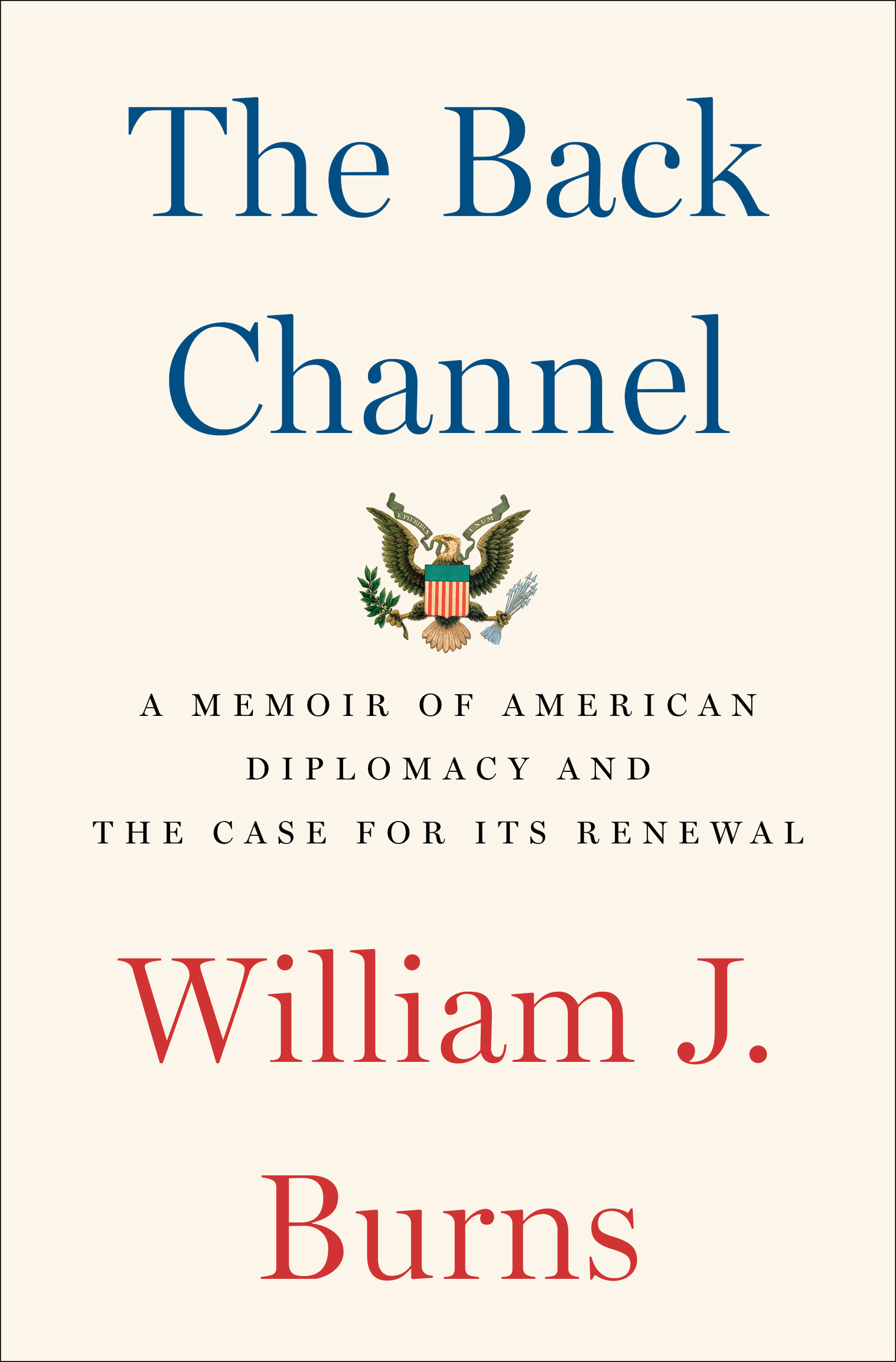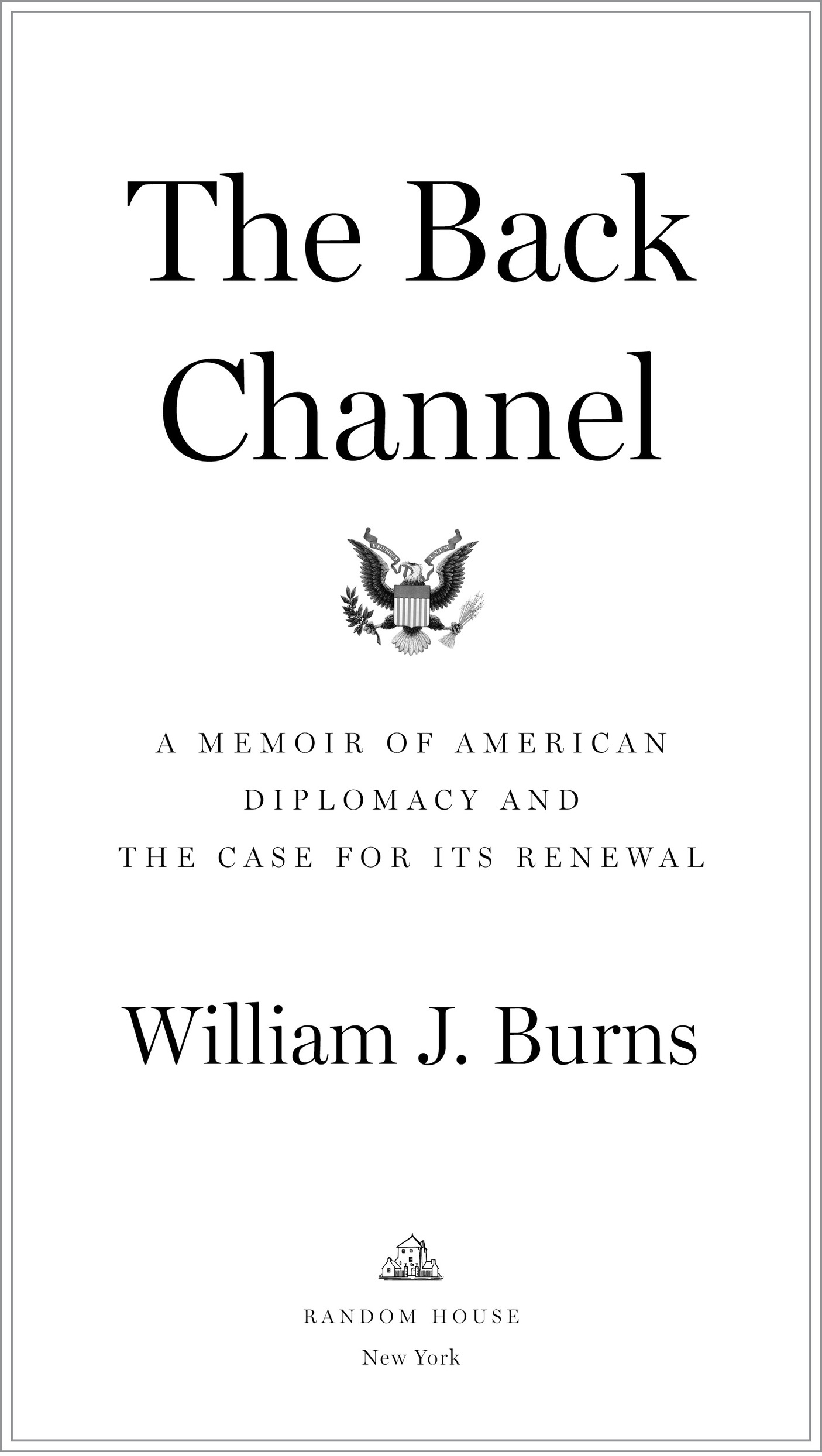Copyright 2019 by William J. Burns
All rights reserved.
Published in the United States by Random House, an imprint and division of Penguin Random House LLC, New York.
R ANDOM H OUSE and the H OUSE colophon are registered trademarks of Penguin Random House LLC.
Names: Burns, William J. (William Joseph), author.
Title: The back channel: a memoir of American diplomacy and the case for its renewal / by William J. Burns.
Description: First edition. | New York: Random House, [ 2019 ] | Includes bibliographical references and index.
Subjects: LCSH: Burns, William J. (William Joseph) | DiplomatsUnited StatesBiography. | United StatesForeign relations19451989. | United StatesForeign relations1989
Cover image: Andrew B. Graham/Getty Images
Prologue
I REMEMBER CLEARLY the moment when I saw American diplomacy and power at their peak. I was seated behind Secretary of State James Baker at the opening of the Madrid Peace Conference in the autumn of 1991, feeling numb from exhaustion and excitement. Around a huge T-shaped table in the Spanish royal palace sat a collection of international leaders andbreaking a decades-long taboorepresentatives of Israel, the Palestinians, and key Arab states. At the head of the table, alongside President George H. W. Bush, was Soviet president Mikhail Gorbachev. He was visibly tired and distracted, the leader of a faded superpower two months away from collapse. They were all united less by shared conviction about Arab-Israeli peace than by shared respect for American influencefresh off the spectacular defeat of Saddam Hussein, the bloodless triumph of the Cold War, the reunification of Germany, and the reordering of Europe.
For a young American diplomat, Madrid was a heady moment. It was a dramatic illustration of how diplomacy could achieve what had seemed unthinkable. For the first time, Arabs and Israelis gathered in the same room, and agreed to the same terms for negotiations. With that, the door for the resolution of a conflict that had roiled the region and the world for more than four decades cracked open. They sat down together, against their instincts, because we asked, at a moment when well-framed U.S. requests were not easily ignored. It marked a time of uncontested American primacy in a world no longer bound by Cold War rivalrywhen history seemed to flow inexorably in Americas direction, the power of its ideas driving the rest of the world in a slow but irresistible surge toward democracy and free markets.
On that day in Madrid, global currents all seemed to run toward a period of prolonged American dominance. The liberal order that the United States had built and led after World War II would soon draw into its embrace the former Soviet empire, as well as the post-colonial world for which we had competed. Great power rivalry had rarely seemed so quiescent. Russia was flat on its back, China was still turned inward, and the United States and its key European and Asian allies faced few regional threats and even fewer economic rivals.
Globalization was gathering pace, with the American economy propelling greater openness in trade and investment. With only a single website and eleven million cellphones in use around the world, the promise of the information revolution was tantalizing, as was that of remarkable medical and scientific breakthroughs. The reality that a profoundly important era of human progress was unfolding only reinforced a sense of permanence for the nascent Pax Americana.
The question at the time was not whether America should seize the unipolar moment, but how and to what end. Should the United States use its unmatched strength to extend American global dominance? Or, rather than unilaterally draw and dominate the contours of a new world order, should it instead lead with diplomacy to shape an order in which old rivals had a place, and emerging powers had a stake?
* * *
ONE YEAR LATER, after President Bush had lost his bid for reelection, I was tasked with writing a transition memo to the incoming Clinton administration and Secretary of State Warren Christopher. In it, I tried to capture the paradox for American statecraft. The memo began by welcoming the new administration to a world in the midst of revolutionary transition, in which you will have both an historic opportunity to shape a new international order and a sobering collection of problems to contend with.
While for the first time in fifty years we do not face a global military adversary, I wrote, it is certainly conceivable that a return to authoritarianism in Russia or an aggressively hostile China could revive such a global threat. I argued that alongside the globalization of the world economy, the international political system is tilting schizophrenically toward greater fragmentation. Ideological competition was not overit was simply reshaped:
The collapse of Communism represents an historic triumph for democracy and free markets, but it has not ended history or brought us to the brink of ideological uniformity. A great wave of democratic institution-building is taking place, driven by a surging post-Communist interest in the political and economic empowerment of individuals. But democratic societies that fail to produce the fruits of economic reform quickly, or fail to accommodate pressures for ethnic self-expression, may slide back into other isms, including nationalism or religious extremism or some combination of the two. In much of the world, including parts of it that are very important strategically for us, Islamic conservatism remains a potent alternative to democracy as an organizing principle.
The memo highlighted a number of other growing problems, from climate change to the AIDS epidemic and continued fragility in the Balkans. There were as many challenges as there were holes in my analysis. I couldnt yet grasp the pace and significance of Chinas rise, the intensity of Russias resurgence, or the anger and frustration seething beneath so many authoritarian Arab societies. What was easier to see was the potential for diplomacy to harness unprecedented military, political, and economic advantage to promote American interests and help make the world more peaceful and prosperous.
The potential for American diplomacy seems far less evident today. The global order that emerged at the end of the Cold War has shifted dramatically. Great power rivalry is back: China is systematically modernizing its military and is poised to overtake the United States as the worlds biggest economy, slowly extending its reach in Asia and across the Eurasian supercontinent; Russia is providing graphic evidence that declining powers can be at least as disruptive as rising ones, increasingly convinced that the pathway to revival of its great power status runs through the erosion of an American-led order.
Regional orders that seemed stable shortly after the end of the Cold War are now collapsing, none more so than in the region for which the Madrid Conference once held so much hope. The implosion of the Arab state system is the sharpest illustration of the risks of emerging vacuums and the dissipation of American influence. With tactical agility and a willingness to play rough, Vladimir Putin has reasserted a Russian role in the region that seemed unimaginable in that palace in Madrid, where Gorbachevs beleaguered presence was more a political convenience for the United States than a mark of Moscows clout. A half-century-long American moment in the Middle Eastinherited from the British, boosted by Desert Storm and Madrid, and badly damaged by the Iraq War in 2003is now disappearing.

